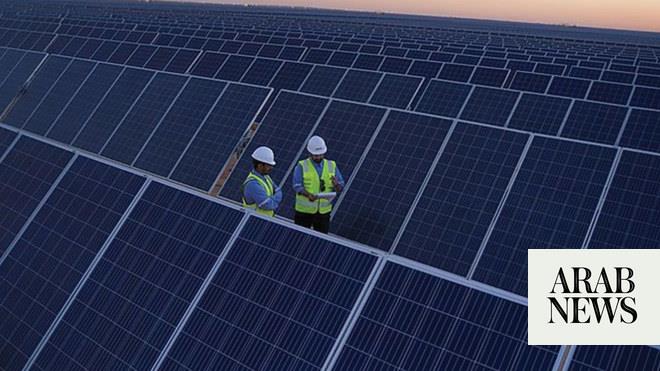
While the eyes of many environmentalists across the world are already focused on November’s COP26 summit in Glasgow, this week’s US-hosted climate conference is also vital in this most important year for global warming diplomacy since 2015.
The US event on Thursday (Earth Day) and Friday, convened virtually by President Joe Biden and involving some 40 other world leaders, is important for at least two big reasons.
Firstly, the US has announced plans to cut its emissions by at least 50 percent compared to 2005 levels by 2030. While even this commitment lags behind Europe, it could spur other large emitters to raise their game, as UN Secretary-General Antonio Guterres hinted recently. He said such a move would “have very important consequences in relation to Japan, in relation to China, in relation to Russia.” Japan and Canada are the most likely candidates to join the “50 percent club” as soon as this week, with South Korea tipped to follow later in the year.
Alongside this group, other key emerging markets including Brazil, South Africa and India are working to strengthen their so-called nationally determined contributions (NDCs), which were pledged at Paris. In a joint statement this month, they said they had “already set forth climate policies and contributions reflecting their highest possible ambition.” For instance, South Africa is consulting on deepening its 2030 emissions cuts by almost a third compared to its 2015 NDC pledge, while Biden is hoping to strike a deal with Brazilian President Jair Bolsonaro on protecting the Amazon rainforest.
To persuade such large emerging markets to step up their carbon-cutting ambitions, the industrialized world will need to step up climate aid. To this end, Biden is expected to set out an international finance commitment package. There is growing pressure for Washington to clarify how it will deliver the $2 billion to the UN-backed Green Climate Fund (GCF) that Donald Trump reneged on in 2016, as well as to increase its contributions in line with other donors. Biden was criticized only last week for offering what was deemed to be inadequate GCF support after four years of missed payments by the US.
India has been particularly vocal in criticizing the US and other key developed nations for not meeting their climate finance commitments. UN Environment estimates there remains a $70 billion annual gap for addressing global climate impacts.
This will be the first moment since the Obama presidency that China and the US are working in partnership on this agenda.
Andrew Hammond
The second reason why this week’s summit matters is that it heralds the first moment since the Obama presidency that China and the US are working in partnership on this agenda. Chinese climate envoy Xie Zhenhua and his US counterpart John Kerry last week met in Shanghai. They agreed to “continue to discuss concrete actions in the 2020s to reduce emissions aimed at keeping the Paris Agreement-aligned temperature limit within reach,” and help developing countries finance a switch to low-carbon energy.
The Kerry-Xie initiative is incredibly important because it will not be possible to stabilize climate change unless the superpowers pull together. It is sometimes forgotten that collaboration between the two in 2014 led to a bilateral agreement that proved the catalyst for Paris the following year. Kerry’s trip to China last week shows that, despite the chilliness of last month’s bilateral talks in Alaska, the climate issue “stands alone” in the words of the US climate chief.
As long as Beijing and Washington are once again aligned on this agenda, the EU will provide the third leg of the stool. Collectively, China, the US and the 27-nation European bloc account for about half of global climate emissions and the triumvirate is critical to positive global climate diplomacy.
If this week’s US summit is a success, it will help catalyze progress at COP26 in November. This is important because, if the Glasgow summit is to move the dial, massive momentum is needed. This is why a detailed run-up of events has been devised that will culminate in the G20 leaders’ meeting in Italy in late October. The roadmap started in January with the international Climate Adaptation Summit and the Davos dialogues, continuing into last month with the COP Climate and Development event and the Ministerial on Climate Action summit co-convened by Canada, China and the EU, with invitees including the US.
Coming up in the next two months are the B7 business leaders’ climate meeting, the UK-hosted G7 leaders’ summit, the Race to Zero campaign’s first anniversary, and the UN Global Compact leaders’ summit. In the autumn, there is the UN General Assembly and Climate Week in New York in September and the green-focused Global Investment summit in October.
This week’s US climate summit is, however, potentially the most crucial event before November. If Biden can convince more key countries to reduce emissions faster and deeper, the prospects of Glasgow becoming the most successful climate conference since Paris in 2015 will significantly increase.
• Andrew Hammond is an Associate at LSE IDEAS at the London School of Economics.
Disclaimer: Views expressed by writers in this section are their own and do not necessarily reflect Arab News" point-of-view












